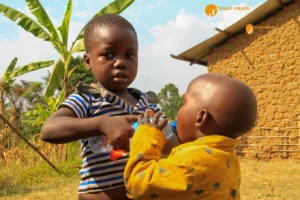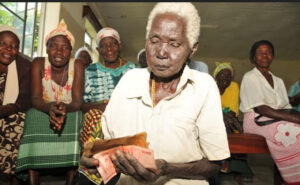Female Genital Mutilation (FGM), also known as female circumcision, is a deeply rooted cultural practice that has affected millions of girls and women around the world, including in Uganda. Despite efforts to eradicate this harmful tradition, FGM continues to be performed, perpetuating physical and psychological harm on its victims. It is crucial to shed light on this issue and advocate for change. The JUC Foundation Uganda stands at the forefront of the fight against FGM, promoting empowerment and education as key tools to end this practice.
Understanding Female Genital Mutilation:
FGM encompasses various procedures involving partial or total removal of the external female genitalia. These procedures are often carried out with no medical justification, but rather as a cultural tradition linked to notions of purity, marriageability, and social acceptance. However, FGM poses severe health risks and violates the fundamental human rights of girls and women.
The Consequences of FGM:
The consequences of FGM are numerous and devastating. Physically, it can lead to severe pain, infection, excessive bleeding, urinary problems, complications during childbirth, and even death. The psychological impact is equally significant, as survivors often face trauma, low self-esteem, and a loss of sexual pleasure and reproductive autonomy. FGM perpetuates gender inequality, reinforcing harmful social norms and limiting the potential of women and girls.
Empowerment as a Path to Change:
The JUC Foundation Uganda firmly believes in the power of empowerment to drive change and put an end to FGM. Empowerment involves providing individuals, especially girls and women, with the knowledge, skills, resources, and support necessary to make informed choices about their bodies and lives. By empowering girls and women, we can challenge harmful traditions and promote gender equality.
Education as a Catalyst for Transformation:
Education plays a vital role in eradicating FGM. By educating communities about the physical and psychological consequences of FGM, its violation of human rights, and the availability of alternative rites of passage, we can change attitudes and beliefs. Comprehensive education campaigns should target not only girls and women but also parents, community leaders, and healthcare professionals. Through education, we can break the cycle of FGM and create a society that values the well-being and rights of every individual.
Collaboration and Advocacy:
Ending FGM requires collaboration between governments, civil society organizations, healthcare providers, and communities. The JUC Foundation Uganda actively advocates for policy changes, legal reforms, and the enforcement of existing laws to protect girls and women from FGM. By working together, we can ensure the implementation of comprehensive measures to prevent FGM, provide support for survivors, and raise awareness on the importance of ending this harmful practice.
Conclusion:
The fight against Female Genital Mutilation is far from over, but the JUC Foundation Uganda remains committed to driving change through empowerment and education. By empowering girls and women and providing them with the necessary knowledge and support, we can break the cycle of FGM and create a future where every girl and woman can live free from the physical and psychological harm caused by this practice. Together, let us raise our voices and work towards a world where all individuals can realize their full potential and enjoy their inherent rights and dignity.





